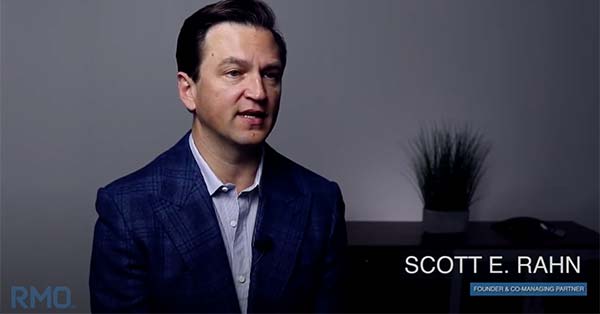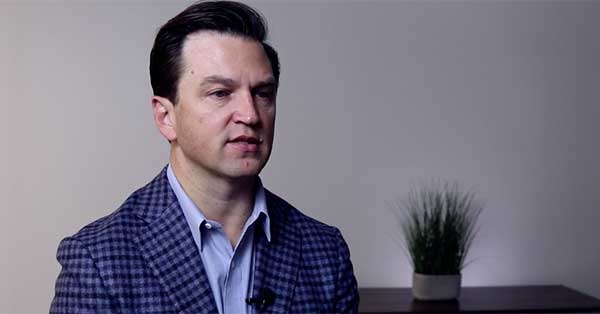CLIENTS
ESTATE ATTORNEYS FOR EXECUTORS AND ADMINISTRATORS
Discovering that you have been named executor of a will or that you need to get appointed administrator of a probate estate, especially while dealing with the loss of a loved one, can be overwhelming. We have the expertise to guide you through the appointment process, handling all of the paperwork and probate hearings so you don’t have to, walking you through your duties and responsibilities, preparing accountings, coordinating with tax and other professionals, and responding to beneficiaries so your estate and probate administration is worry free, cost-effective, and efficient.
And if you find that your appointment or administration efforts are being challenged, we are built to handle your trust, probate and estate litigation. Whether the challenge involves a competing probate petition or objections, a will contest, breach of fiduciary duty claims, a petition for instructions, a petition for removal, objections to your accounting, or financial elder abuse claims, we have the expertise to thoroughly investigate and litigate or resolve your dispute.
What Are the Powers of the Executor of a Will?
While California law grants executors considerable authority in managing estate assets, the powers of an executor of a will are limited by the fiduciary duties owed to the estate and its beneficiaries. This means that executors are legally required to act in the best interests of the estate and its beneficiaries. In no case can an executor place their own self-interest above the interests of the estate.
Generally speaking, the executor of a will has the authority to manage the affairs of the estate.
The executor is typically selected by the deceased and named in the will. Executors can exercise considerable judgment when managing estate assets, including:
- Hiring a lawyer to assist with the estate administration
- Marshalling estate assets
- Paying estate debts and taxes
- Selling property
- Distributing estate assets according to the will
Is an executor of an estate the same as administrator of a will?
No, while executors and administrators carry out the same duties, they are not the same.
California refers to the person responsible for settling an estate as a “personal representative.” Executors are personal representatives who are named in a will. In contrast, administrators are not named in a will because either there is no will or the named executor(s) of a will deceased or otherwise cannot serve. Both executors and administrators must be appointed by a court to have any authority to act on behalf of the estate.
Can an executor of a will also be a beneficiary or heir?
Yes. Beneficiaries and heirs can, and regularly do, serve as executors in California.
Executors often are spouses or children of the deceased, and California law places no restrictions on beneficiaries or heirs serving as executors. In fact, anyone who is at least 18 years old and is not legally incapacitated can be an executor.
Even though a beneficiary serving as an executor of a will may pose a conflict of interest, this is rarely a problem because of the fiduciary duty the executor owes the estate and its beneficiaries. Unfortunately, on rare occasions, an executor-beneficiary will violate their fiduciary duty and take an action that benefits themselves to the detriment of the estate or other beneficiaries. These self-interested actions are referred to as “self-dealing.” If you are a beneficiary and you believe the executor is engaging in self-dealing, you should seek legal advice from a probate litigation lawyer as soon as possible.
Can an executor of a will pay themselves a salary?
No, an executor of a will cannot pay themselves a traditional “salary” because all compensation but be approved by the court prior to payment. But an executor, or administrator, may receive a commission for their ordinary services, as well as reasonable fees for extraordinary services, such as selling real estate or handling litigation. All these commissions will be paid off the top from the estate assets and prior to any distributions.
Under California State Probate Code §10810, an executor may receive compensation based on the estate value. The pay rates are:
- 4% on the first $100,000
- 3% on the next $100,000
- 2% on the next $800,000
- 1% on the next $9,000,000
- ½% on the next $15,000,000
- A reasonable amount to be decided by the court on all amounts above $25,000,000
So, for example, the executor of a $600,000 estate would be entitled to receive 4% of the first $100,000 ($4,000), 3% of the next $100,000 ($3,000), and 2% of the next $400,000 ($8,000) for a total of $15,000.
Can an executor of a will take property from the estate?
It depends. The executor of a will can usually sell estate property, either with or without court approval depending on how much authority they have, but they cannot take it for themselves unless the will leaves it to them and the court approves its distribution to them.
As long as they believe it is in the estate’s best interest, executors may be able to sell personal property of the estate for 90% or more of the appraised value without court or beneficiary approval. However, if the executor wants to sell real estate, they may first need approval from the court. The proceeds from the sale then belong to the estate, not the executor.
However, executors cannot simply take property from the estate and keep it for themselves. Executors are legally required to distribute estate assets according to the will, so they cannot take estate property unless it is specifically given to them in the will and the court approves the distribution of that property to them in an approved petition for final distribution.
Can an executor of a will take money from the estate?
No, executors cannot take money from the estate for themselves.
The estate’s money belongs to the estate, its creditors and beneficiaries, not the executor. While the executor has the power to manage and direct estate funds, they are bound by their fiduciary duty to distribute the money according to the will to the estate beneficiaries. Even when the executor is also a beneficiary, they cannot simply take money from an estate bank account. Instead, they must wait until the estate is closed and the money is distributed with court approval.
Do I need a probate litigation attorney to contest a will or trust?
While you are not legally required to use a probate litigation attorney to contest a will or trust, it will be greatly beneficial for you to have an experienced lawyer on your side.
Litigation to contest a will or trust involves complicated, nuanced legal issues and specific probate and civil procedures. Probate litigation attorneys deal with these matters regularly and are well-versed in these processes. An experienced lawyer can evaluate the strength of your case, provide legal guidance, and present your case in the best possible light to get you the best result. There is an old saying: “A lawyer who represents himself has a fool for a client.” The takeaway? Even the best lawyer knows it’s best to hire counsel.
Do I need a probate lawyer near me?
If you have a probate, hiring the best attorney familiar with the local probate court where your case is going to be heard and decided often will get you the best result. Hiring someone local can be logistically favorable, but the reality is that familiarity with the court and its judges, processes and rules will help move your case along more efficiently and cost-effectively, getting you a better result sooner and likely for less legal spend.
Learn More
Can the Executor of a Will Take Everything?
Generally speaking, the executor of a will cannot take everything simply based on their status as executor. Executors are bound by the terms of the will and must distribute assets as the will directs. This means that executors cannot ignore the asset distribution in the will and take everything for themselves. However, if the executor of the will is also the only beneficiary named in the will, they can take the estate assets after debts and taxes are paid.
Can an Executor Override a Beneficiary?
An executor can override a beneficiary if they need to do so to follow the terms of the will. Executors are legally required to distribute estate assets according to what the will says. This means that if a beneficiary disagrees with the distribution in the will or other terms the executor can — and must — disregard the beneficiary’s desires to carry out the will’s requirements. If a dispute arises, then an executor should petition the court for instructions, and that court order will then control how the issue is resolved.
PRACTICE AREAS
We have decades of experience getting results for people like you. Our team will listen to you, investigate your claims, develop a strategy aimed at accomplishing your goals efficiently and cost-effectively, whether that’s through negotiated resolution, formal mediation or trial, so that you can move on with your life. Schedule a free consultation, or give us a call.
TRUST LITIGATION
We represent beneficiaries, heirs, administrators, executors, trustees and conservators/conservatees in cases involving disputing a will or trust, claims of breach of fiduciary duty, fiduciary misconduct and fraud, investment mismanagement, financial elder abuse, incapacity, and undue influence.
PROBATE ESTATE LITIGATION
Stepping into the role of “Personal Representative” to handle your loved one’s trust, will, or probate estate can be an overwhelming experience. We have decades of experience helping individual and institutional administrators, executors, and trustees fulfill all their duties efficiently and cost-effectively. Although just a summary, below are many of the things we can help you with, and we’re always happy to answer your questions.
CONSERVATORSHIPS
When your loved one is incapable of handling their affairs, whether financial or their own care, it may be time to consider a judicial conservatorship of the person (personal health and welfare of the conservative) or conservatorship of the estate (care of the conservatee’s finances), especially where your loved one may be the subject of financial or elder abuse. Often family members believe that a power of attorney or healthcare power may be sufficient, but often they are wrong. Sadly, even more often the person who holds those powers is the one abusing the loved one. Whether you need help analyzing whether a conservatorship is warranted, or need help defending against a frivolous conservatorship action, we can help.
FINANCIAL ELDER ABUSE
Financial elder abuse is one of the fastest growing areas of law, affecting one of the most vulnerable sectors of our society. California’s elder abuse statutes provide extra protections to those 65 years of age and older who were victimized by the fraud or theft of another, most often a “loved one” who takes advantage of mom, dad, aunt, uncle, grandma or grandpa’s incapacity. We have successfully prosecuted and defended hundreds of financial elder abuse cases.
Our Case Results
RMO has a proven track record of protecting people and defending legacies.
FROM THE BLOG

The Guide to Family Trust Embezzlement and Stealing
Family trust embezzlement and stealing is more common than you might think. At RMO Lawyers, we investigate, prosecute and defend these claims every day…

The Penalty for Stealing from an Estate
When an abuser steals from an estate, the penalty can be as little as simply returning the stolen monies or assets to the trust or estate. However, the California Probate Code does…

What does a probate lawyer do?
When a person passes away, their assets must be disbursed in a manner consistent with state laws and following the directions they put forth when they were alive…
SCHEDULE A FREE CONSULTATION
Be advised that the RMO Client Relations Team will reach out prior to your scheduled time, as our policy requires that we gather additional information concerning the parties to your case before we can confirm your consultation. In the event that we are unable to reach you, regrettably, we will need to cancel your requested consultation.
Communication Disclaimer
Please note that communications by you to RMO LLP or any of its lawyers through this website do not create an attorney-client relationship between you and the firm. Do not send any privileged or confidential information to the firm through this website or otherwise until instructed in writing from us to do so.

